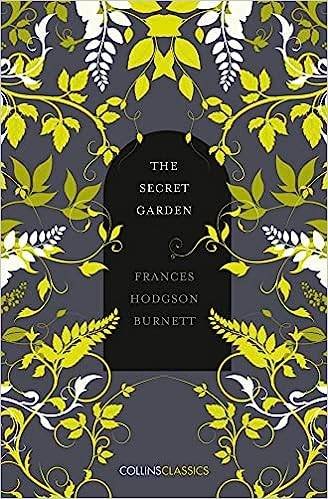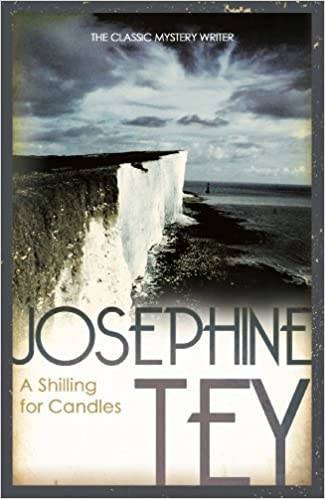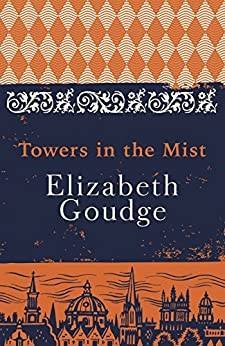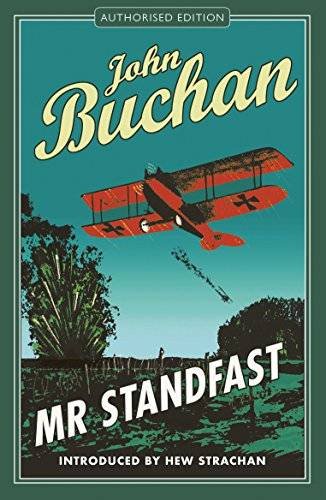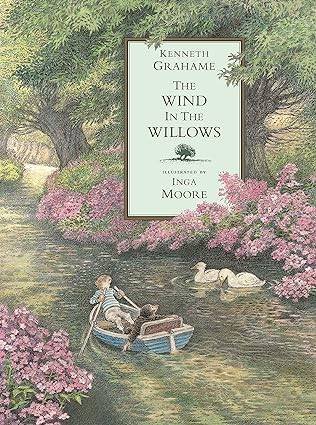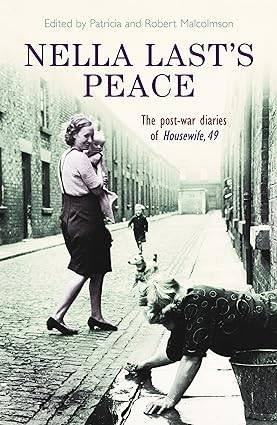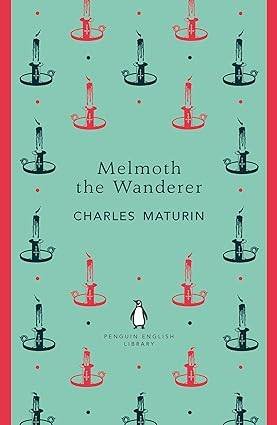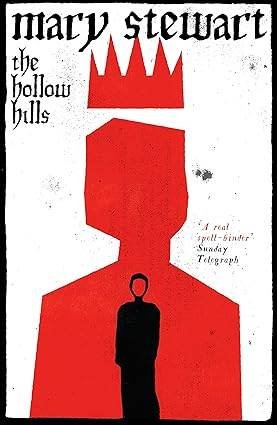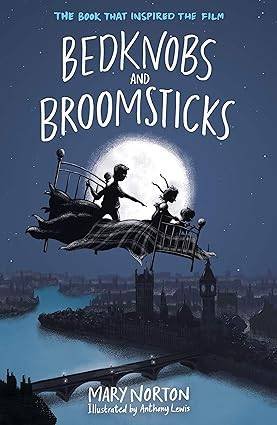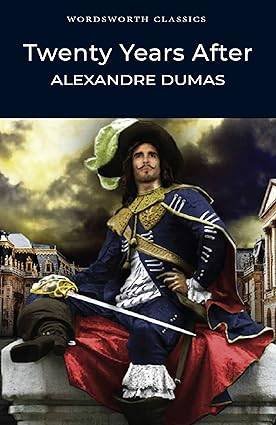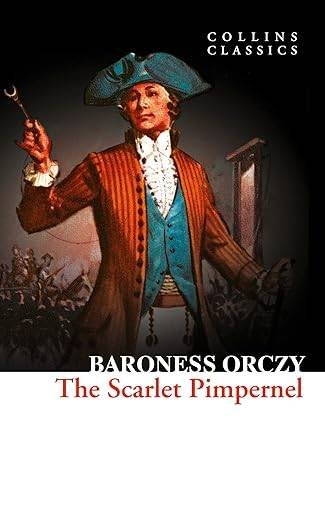Home » Book Reviews » PL Travers » Mary Poppins by PL Travers
Possible spoilers ahead
I can’t believe I’ve never read the Mary Poppins book before. I had forgotten it was a book, to be honest, I just always think of it as the wonderful Julie Andrews film and the theatre production I was lucky enough to see on holiday in New York several years ago. I saw this book in a charity shop though, so felt I had to read it. However, all I could see in my head when I began to read the book were the scenes from the film, and the book is so different from the film that it kept tripping me up! I kind of wish I could read this with fresh eyes, having never seen the film.
Jane and Michael observe the wind blowing Mary Poppins, their new nanny, to their door, and they watch fascinated as she slides up the bannisters! Her carpet bag looks empty but she pulls out many articles from it, including a folding armchair and a campbed with blankets already on it! And the medicine she gives them changes to different delicious flavours for each person. I love these amazingly clever fresh ideas, so many lovely lovely scenes. I do feel, however, that there isn’t as much description of these scenes as there are in Mary Norton’s or E Nesbit’s books which I’ve read recently, no build up of anticipation as the children wonder what Mary is doing and how she’s doing it and what is going to happen, it’s more the basic fact of her doing it, which is a shame as the anticipation and description makes a scene more magical, and these really are such wonderful fresh fun ideas that it makes me wish the author could have made more of them, I can’t help wishing this book could have been written by Norton or Nesbit. I wonder if this is perhaps why I keep imagining the scenes as they are in the film and theatre, rather than creating fresh scenes in my mind from the book and being totally absorbed by the book, because the full description isn’t there in the book for me to picture it in my own mind. I can thoroughly appreciate though why it’s been made into film and theatre show, as these are such wonderful ideas that are crying out to be developed further.
Michael realises you can’t look at Mary Poppins and disobey her. But he is already, after just a few hours, begging for assurance that she won’t leave them. Mary says she’ll stay until the wind changes. I find it interesting that Mary shows the children no affection and is quite stern with them but they still crave her to stay, obviously the magic is a fascinating attraction for the children but I wonder if it is the structure and order that she brings to their lives that they also crave.
Mary goes to Bert (Herbert Alfred), the match-seller and pavement picture artist, expecting to be taken out to tea as it is her afternoon off, but he has no money so they instead go inside one of his pavement drawings for a day out. Mary herself seems surprised by it all. Once within the drawing, they are dressed in fine clothes, have an afternoon tea consisting of whelks (!) and raspberry jam cakes and tea to drink, and all with no bill to pay. They sit on horses on a Merry-Go-Round, and ride to Yarmouth and back. The way into the drawing and out of it is through a large white doorway that looks as if it is made of chalk lines. I love this whole scene with Bert, it is lovely to see them happy together and them so considerate of each other and delighted in each other, and to see a softer side of Mary. I think the magic of them going inside the pavement drawing to another world seems to be of Bert’s making rather than of Mary’s though, it is his suggestion and he seems to action it, so the magic seems to be his rather than hers. I wonder though if they really go inside the drawing or is it instead just Bert encouraging Mary to imagine it, showing that you’re not hindered by lack of money or opportunities so long as you have imagination, and as Mary says ‘everybody’s got a Fairyland of their own’. I know I keep saying it, but I just love the wonderful imaginative ideas in this book. I also find it interesting how Mary herself is described in the book (obviously not in-depth, as there are no in-depth descriptions as I have already lamented!), as ‘very vain’ and easily offended and that no-one ever knows what she feels as ‘Mary Poppins never told anything’, however she shows kindness for Bert’s feelings by concealing her disappointment that he hasn’t enough money to take her to tea, and we can see her tendency to be vain with how very proud she is of her umbrella with the parrot’s head handle and how much she likes to show this off.
Mary and Jane and Michael go to visit Mary’s uncle, Mr Albert Wigg. Uncle Albert is sat up in the air towards the ceiling, and he explains that when his birthday falls on a Friday, as it does today, and he laughs, which he does very often, then he gets so filled with laughing gas that he floats, and he can’t get down until he thinks of something serious or sad, or when his birthday ends at midnight! Jane and Michael begin laughing at how comical Uncle Albert looks, bouncing in the air like a balloon and clutching at things near the ceiling, so they also then float to the ceiling. Mary Poppins is extremely disapproving of all this. The children appeal to Mary to laugh so she can join them, but Uncle Albert says that Mary doesn’t need to laugh as she can come up if she wants to without laughing and that she knows it, and he looks ‘mysteriously and secretly’ at Mary. Mary then joins them, going straight upwards. She then seems to summon the tea table up too, though doing this without any apparent order or gesture or showing that she is doing it and ‘to this day, Jane and Michael cannot be sure of what happened’ although Uncle Albert praises Mary afterwards which implies she did arrange it. Uncle Albert’s housekeeper comes into the room with more hot water for the teapot, and is shocked to see them all up by the ceiling, she tells them they are undignified and says that she has more respect for herself than they do for themselves. She then rises upwards with the tray of hot water, completely against her will and almost weeping with distress, and Mary thanks her. Uncle Albert gently admonishes Mary, saying she shouldn’t do it and that the housekeeper will never get over it. Mary says shortly afterwards that it is time to go home, and this sad thought brings the children and Uncle Albert to the ground. When the children mention the ceiling tea party afterwards, Mary looks shocked and implies it never happened, and they are puzzled and begin to doubt their memories. I’m pleased that this scene is actually described more fully than the other chapters, and I am interested again in the delicious-sounding spread laid on for them, consisting of bread and butter, crumpets, coconut cakes, and a large plum cake with pink icing, plus tea to drink. And I like that Mary’s family, ie Uncle Albert, clearly knows about Mary’s magical skills and is complicit in them, and I’m intrigued that Mary doesn’t boast about this magical ability (as we know she is vain) but almost does it slyly. And it seems to be implied that Mary caused the housekeeper to rise to the ceiling, so I wonder if this was because the housekeeper dared to question Mary’s dignity and respectability?
I’m intrigued by the use of leading capital letters in the book. I presume it sometimes denotes the emphasis that Mary puts on words, such as threatening they will go ‘Back Home’ if there are any more questions from the children, but then people and places seem to receive a leading capital letter too where I wouldn’t expect to see one, such as with ‘the Waiter’ and ‘the Policeman’, and ‘at the Tobacconist’s Shop’ and ‘the Bus’. And in the pavement drawing where Mary and Bert have afternoon tea, the waiter uses a leading capital for the words ‘it was in the Background’ and for ‘we close at Seven’, why is this, I wonder?
Andrew the dog is owned by Miss Lark, who spoils him and treats him more like a child than a dog. Andrew sleeps on a silk pillow under a fur rug in Miss Lark’s room, has cream and oysters and chicken breast and scrambled eggs with asparagus for his meals, is taken to the hairdressers, and wears overcoats with different coloured checks and stripes, and even two pairs of boots for his four legs. However, Andrew is very bored with his life, and makes friends with the common dogs, particularly one who is half Airedale and half Retriever and is ‘the worst half of both’, and who brings Andrew all the gossip from town. One day, Mary and the four Banks children are in the park and Andrew runs past on his own rather than with Miss Lark as usual, he yaps at Mary and she answers him giving him directions and a brief description of the house Andrew seems to be asking about and a guidance about when the relevant person (or dog?) is usually home. Mary refuses to tell Jane and Michael what Andrew was saying. Later they see Andrew and the common Airedale/Retriever walking up to Miss Lark’s together, Andrew then barks at Miss Lark and Mary translates this, saying that Andrew is stating that his friend Willoughby must now live with him in Miss Lark’s house and sleep on a silk cushion in Miss Lark’s room but that they will never wear overcoats or go to the hairdressers, otherwise they will both go and live elsewhere and never come back. Miss Lark reluctantly agrees. Oooh, I love love love this chapter with Andrew the dog!! I think this surely is Mary’s best magical skill, to be able to communicate with Andrew and understand his bark. And I know I am taking this book far too literally, especially this chapter, but I want to know where Andrew was running to and asking directions from Mary towards, was it to Willoughby’s home? And if so then why, was it because he knew that Willoughby was in trouble and needed rescuing? Or was it someone else’s home that Andrew was going to and he met Willoughby there or on the way back? Or had Andrew just reached the end of his tether with Miss Lark and went to fetch Willoughby in order to ask him to join him, so there was no real drama or rush? And did Willoughby have a home and a name before, or was he a waif and stray (as Miss Lark called him) and therefore homeless, as if this was the case then again whose home was Andrew going to? Also which dog’s idea was it for Willoughby to live with Andrew? I did chuckle at Willoughby being described as ‘the worst half of both’ breeds of Airedale and Retriever. And this chapter also made me wonder how I have owned several dogs and yet never thought to call any of them Andrew, or indeed Willoughby, these now just seem naturally perfect names for dogs! And I note that the word hairdressers is written with a leading capital H…
Jane and Michael see a cow walking down Cherry Tree Lane looking into gardens. Mary says she recognises the cow and it was a friend of her mother’s. Mary says the cow had a content and routine life and was happy with this, but one night a star fell from the sky onto her horn and she couldn’t stop dancing and after seven days of dancing she decided to go to the King for advice, but he failed to get the star from her horn so suggested that she jump over the moon. She did this and the star fell off and her dancing stopped. She was relieved at first but then became discontent with her routine life and missed the feeling of dancing, which she remembered as a pleasant and happy feeling, ‘as if laughter were running up and down inside me’. She went to Mary’s mother for advice who told her that many stars fall out of the sky every night but are unlikely to fall in the exact same place so the cow must go and look for another star, which is what she is doing when the children see her looking into gardens. I was very intrigued with this story mentioning Mary’s mother, as I find it hard to imagine her with parents, even though we have already met Uncle Albert so clearly she has family.
Michael wakes up with a ‘curious feeling inside him’ and knows he is going to be naughty that day, he proceeds to do so in many ways such as refusing to get out of bed when told, kicking the bannisters with his feet knowing it will wake everyone, knocking the water jug out of the maid’s hands, kicking the cook, tying Andrew’s tail to the fence with a piece of string, pushing the twins and pulling Jane’s hair. On a walk with Mary in the park, Mary tells him to pick up something shiny on the ground, he does and it is a compass. Mary says it is hers as she saw it first and it is to go around the world with. She turns the compass and says ‘north’ and they are suddenly in a cold windy place full of ice and snow. A polar bear appears and welcomes Mary, obviously knowing her, and he offers them a snack of a herring, but Mary says that they can’t stay but she will come back again for a chat and gossip. She then says ‘south’ and they are suddenly in a warm jungle. A hyacinth macaw appears and obviously knows Mary and asks her to sit on his eggs as his wife is away and he wants some sleep, and he offers them a snack of bananas, but Mary says they can’t stay. She then says ‘east’ and they are suddenly in a forest of bamboo trees. A sleepy panda bear appears who obviously knows Mary, he says she should have let him know that she was coming and he then would have stayed awake. He offers them a snack of bamboo shoots and says he will make a home of leaves and bamboo shoots for them, but Mary says they can’t stay. She then flicks the compass and they head west and suddenly find themselves on a long white shore. A dolphin and its youngster appear, and Mary calls the dolphin Amelia. Amelia offers them cockles and mussels and seaweed to eat. They then suddenly return to the park. Michael is still naughty that evening and when he is sent early to bed he spots the compass on a shelf and climbs on a chair to take it. He then decides to go around the world, thinking that this will show everyone, that they will never find him and it will serve them right, but when he says ‘north, south, east, west’ the four creatures from earlier all approach him in a menacing and angry manner. He screams in terror for Mary, and feels himself held in a warm and soft embrace and carried along. He then opens his eyes to find himself wrapped in a blanket and in his own bed feeling peaceful and happy and kind and generous and lucky to be alive. Tee hee, I loved all the food that they are offered by the animals in this chapter, I guess this is as a welcoming gesture but the book does refer to food quite a lot (which always entertains me!). I also found interesting Mary’s response to the macaw’s suggestion that she could sit on the eggs as well as he could and she says ‘Better, you mean!’, which made me wonder if this was her meaning that she feels she can bring up the Banks children better than their parents can. And, related to that, I also found it interesting that when Michael is scared, he calls for Mary rather than his mother.
Mr Banks suggests that the children join him at his workplace for tea and shortbread fingers if the weather stays fine, however the children are more excited that going to their father’s office in the city means they get to see The Bird Woman on the steps of St Paul’s Cathedral. The only words that The Bird Woman says are ‘Feed the birds’ and ‘Tuppence a bag’ when she sells her bags of breadcrumbs to people passing by, and even when Jane and Michael ask her questions she doesn’t say anything else. The children buy a bag of food and feed the pigeons and doves, although Mary dismissively calls all the birds ‘sparrers’, and the birds fly around The Bird Woman’s head when they’ve finished the food. I can’t read the Bird Woman chapter without humming the song from the film! I was puzzled at the reference to Sir Christopher Wren not being related to Jenny Wren, as I wondered if this was Jenny Wren from Dickens’ Our Mutual Friend? Although, when I google I see there is a nursery rhyme about Jenny Wren and Robin Redbreast so it’s probably this that is being referred to.
Mary has taken Jane and Michael and the twins with her to do the grocery shopping. They go to buy gingerbread but Mary takes them to a different shop than the one they usually go to, and this shop looks very small and dark from outside. There are rows and rows of gingerbread inside, with a gilt star on each one. Fannie and Annie come to serve them, they are kind but nervous, they are also extremely large people. Their mother, Mrs Corry, is very small and old, and very sharp and critical of her daughters. She obviously knows Mary well, and she makes reference to people she had spoken to long ago, such as Alfred the Great, as if she was there at the time, she even says she was alive at the time the world was being made. She also has fingers which are sweets, which she breaks off and which then grow again into a different sweet. When the children buy the gingerbread, Mrs Corry asks them to stick the money onto her coat with the other money stuck there. She then asks the children where they will hide the gilt stars from the top of the gingerbread, and they tell her where. When they look back at the shop after exiting, it has disappeared. Later that night they are awoken by Mary sneaking into their room to take the gilt stars from their hiding places, they then hear whispering outside the house and see Mary and Mrs Corry and her daughters out there, who then proceed to go up the hill at the end of the street. They see the daughters set up some ladders, and Mary and Mrs Corry climb the ladders with a pail of glue and paintbrushes, and paint the gilt stars onto the sky and they then twinkle. Jane asks Michael if the stars are gold paper, or if the gold paper pieces are stars. I found it quite comical seeing Mary interact with the shopkeepers, I can definitely see that she is quick to take offence at relatively harmless things they say, and she is vain as she frequently looks at the reflection of herself in her new shoes. I find it intriguing thinking about her character really, as she’s not motherly and gentle particularly, instead she is quite stern and impatient and scornful and sharp and the children know to tread cautiously around her. I know this is set in a different time but I can’t help being a little disappointed in (what I would class as) her character failings and her seeming lack of nurture. I do wonder whether if she didn’t have the magic, then would she have been liked at all? And I wondered if Mrs Corry was supposed to represent some mythical or religious figure, with her having been around throughout history and speaking to famous historical figures. And her fingers being sweets which she then breaks off, is a bit gruesome really! And I felt she was a bully to her two daughters, being inconsistent in her demands and not letting them speak to explain and mocking them and taking pleasure in upsetting them, she really doesn’t seem nice at all, and yet she is very kind to the children.
The baby twins, John and Barbara, can hear and understand what the starlings and the sunlight and the wind and the stars and the trees are saying, as can Mary, and those things can all hear and understand what the babies are saying too. Mary tells the babies that Jane and Michael used to be able to hear and understand these things talk too, but that they lost this as they got older and the babies will lose it too, which the babies insist they will not and are greatly upset at the thought of. The starling explains that the only one who hasn’t lost this after the age of one is Mary and that she is the ‘Great Exception’. And after the twins’ first birthday, they indeed can no longer understand the language of things as they used to, and the starling comes to speak with them and is ignored, and he is quite upset at this and brushes a tear from his eye, though he denies this to Mary. I like the chapter of the twins, John and Barbara, partly because of the magic of it all, but partly because of the cheeky starling. And he is called ‘Starling’, with a leading capital letter, which makes me wonder if the reason things have a leading capital letter is because they actually have an identity and are proper characters in the book, as the Starling and the Wind? Although then I see that isn’t really consistent as in this chapter the Starling and the Wind talk and both have leading capitals, but the sunlight talks and that doesn’t have a leading capital, arrrgh! I chuckled at the starling insisting that his ‘roaring and screaming and shouting’ which Mary accuses him of doing all day long and half the night, is actually ‘consultations, discussions, arguments, bargaining…and quiet conversation’, tee hee. And I also chuckled at him teasing Mary, saying she’s not special in looks and that one of his day-old chicks is more handsome. I also loved when he ‘puts his wings on his hips and roared with mirth’, and I loved too that he goes away on a holiday to Bournemouth! I found the idea that the babies can hear the starling and the sunlight and the wind, etc, and these things can also understand them, such a lovely magical comforting thought. I also loved the babies explaining the gentle tricks they play on ‘Grown-ups’, such as putting their foot in their mouth or pulling off their socks in order to amuse the grown-ups, as grown-ups are so simple and so easily amused! And with Mary being the ‘Great Exception’, I wonder if this is the secret to Mary’s ability to do magical things, because she has always kept the magical extraordinary abilities of a baby?
Jane and Michael are keeping out of Mary’s way as much as they can, as she is very stern that day, and Michael wishes they could be invisible. Mary tells Michael that the sight of him is more than any self-respecting person could be expected to stand. Michael says he wonders what happens at the zoo at night when all the visitors have gone home, and Mary overhears this. It is Mary’s birthday that day and when her birthday falls on a full moon then special magical things happen, and on this day the animals at the zoo host a party for Mary. The animals all treat each other with great friendliness, even ones who usually hunt each other. People are in the cages, including Admiral Boom from Cherry Tree Lane, and others who have not exited by the time the gates were shut for the evening, while the animals roam free, and animals who usually carry people or perform for people are watching or encouraging people to do these tasks instead. The Lord of the Jungle and of these animals is the Hamadryad Snake. He is related to Mary, being her first cousin once removed on her mother’s side. Mary seems quite in awe of the King Cobra, and he gives her one of his skins as a gift and engraves it with the words ‘A present from the zoo’, she is very touched by the gesture and has it made into a belt. I loved the idea of the animals roaming freely at the zoo, all friends with each other and using the humans as the humans use them. I particularly liked the brown bear who guides Jane and Michael to the Snake House, putting an arm around them both and them being able to feel ‘his warm soft fur brushing against their bodies and hear the rumblings his voice made in his stomach as he talked’. But again I find it quite hard to like Mary, really, which seems remarkable given how she is conceived to be such a loveable character, but she is really quite stern and bullying, and I was shocked at her telling Michael that the sight of him was more than any self-respecting person could be expected to stand! Maybe that was usual treatment for children of this time (them being seen and not heard, etc) but I can’t help being a bit shocked by it today. And then she seems inconsistent as she seems to show kindness to the children by taking them to the zoo, although I wonder if Mary choose the zoo as the destination because Michael voiced it (which would be kind), or was the destination already planned for that day, being Mary’s birthday, and Michael had perhaps heard the word zoo mentioned by Mary that day and this was what put this question in his mind (in which case it was still kind of her to take them, but less kind as the preference for the destination was therefore hers). I also find it intriguing who called the children from their beds and led them to the zoo? If I presume it’s Mary, then this would show kindness on her part for letting them be involved, or if it’s not Mary then who can it be (and this also again reduces Mary’s kindness)? I like Mary’s use of the words ‘spit-spot’, as I remember this fondly from the film. And I was interested in the theme of birthdays being extra special when they fall on certain days, and I remember that Mary’s uncle can float on air when his birthday falls on a Friday. And I had to google the Hamadryad Snake as I’d not heard of it before, and it is apparently the King Cobra. I was fascinated by Mary’s relationship to the snake (being the first cousin once removed on her mother’s side), with it being her mother again who seems to have had magical connections and presumably been the magical influence on Mary. I can’t remember any mention of her father, which makes me wonder if he was magical too. How I’d love to know more of Mary’s life and family history.
Jane and Michael are Christmas shopping with Mary, they’re at the Largest Shop in the World. Mary has been admiring her reflection in the shop window with her new gloves which she is very pleased with, while the children are admiring the toys in the window. A child appears, skimpily dressed in what looks like a piece of the sky, she thanks them for waiting, saying she is late, though Mary seems as surprised to see her as the children are. The child says she is one of the Seven Sisters star constellation, she is called Maia, and says they are known as the Pleiades and their job is to make and store the spring rain. She says she has come to buy Christmas presents for her sisters, Electra, Taygete, Alcyone, Celaeno, Sterope, and Merope, and asks the children’s advice on suitable gifts. She says she has been watching the children from the skies and knows everything about them. Mary seems a little in awe of her, and at the end of the shopping expedition when Jane points out that Maia hasn’t bought anything for herself, Mary gives Maia her prized gloves. They smile at each other, ‘as people smile who understand each other’, and the children observe tears in Mary’s eyes when she watches Maia leave. Maia returns to the sky by walking up invisible stairs in the sky, and this is seen by others so isn’t something the children later wonder is a dream that Mary denies has ever happened. I’m intrigued by this story as it’s another one about stars, and I’m puzzled just what stars are supposed to represent in this book as this is the third story about them and yet they’re different in all three stories. In the story with the cow, stars can fall from the sky. In the story with Mrs Corry, stars are stuck into the sky by her and Mary. And in this story, one of the stars in the Seven Sisters constellation comes to earth. So are the stars real, or glittery paper? Are they ‘people’ like Maia (one of the Seven Sisters) who can interact with humans? Or are they inanimate, like the one stuck in the cow’s horn? I am also quite fascinated at us seeing a gentler side of Mary in this chapter, and see her seemingly for once to be overawed and impressed by magic as the children are frequently overawed and impressed by it. I do find it interesting to see Mary in awe of someone else, not in charge of or as an equal to but almost impressed by the magicalness of that person. Also, Mary doesn’t seem to have arranged this piece of magic herself and seems delighted at the surprise and rareness of it, like with Bert who seemed to arrange the magic of going into the pavement drawing, it’s interesting seeing people other than Mary doing magic. I have never known the names of the stars in the Seven Sisters constellation, I will have to check on Wikipedia for information (non-magical information, of course) on this constellation. And I wondered if the ‘largest toy shop’ was Hamleys? And I chuckled at the gifts the children bought for family members, which were all actually what they most wanted themselves!
The West Wind has come, which is the first day of spring. Jane and Michael suddenly remember what Mary said about only staying till the wind changes, but they hope this won’t happen. Later in the day, Mary gives Michael her compass, and the children notice that Mary doesn’t say a cross word all day, and in the end they beg her to be cross, saying it is not like her not to be cross. At the end of the day she puts her hands lightly on each child’s head and tells them that she will take the shoes downstairs to be cleaned and they are to behave themselves until she comes back. The children immediately feel they want to run after her but somehow feel unable to move. They wait, and then hear the front door slam and look out of the window and see Mary outside with her coat and carpet bag and umbrella. The wind is blowing strongly at her, but she seems to smile at the wind, ‘as though she and the wind understood each other’. Mary opens up her umbrella and the wind lifts her from the ground and carries her away. Jane and Michael grab the twins and bring them to the window so they can say goodbye too, and Mary disappears over the hill. Mrs Banks is angry that Mary has left them, she says Mary had just told her ‘I’m going’, and the cook remarks on Mary’s airs and graces and that she kept herself to herself. Michael and Jane sob, and Michael wails ‘Mary Poppins is the only person I want in the world’. Jane finds a small parcel under her pillow, it is a picture of Mary painted by Bert with a note saying ‘au revoir’ which they find out means ‘to meet again’, so they then have hope they will see Mary again. At the end of the book, Jane tucks Michael into bed, ‘just as Mary Poppins used to do’.
Awww, so I guess this shows that Mary has encouraged the children to be more caring and kind to each other, with Jane tucking Michael into bed and also with the children thinking to take the twins to the window so they could also say goodbye to Mary. This chapter also made me wonder what time of year the start of the book is as that is the East Wind, so is this autumn or winter? Mr Banks said at the start of the book that there is a frost in the air, plus it is mentioned that the branches of the cherry trees in Cherry Tree lane are naked, so I’m thinking it must be winter rather than autumn, in which case Mary hasn’t stayed very long really, just one season. I also wonder if there is an old folk tale about the wind bringing change, I seem to remember from my childhood that you were told that if you pulled a face and the wind changed then your face would stay like that, and I remember from Dickens’ Bleak House that Jarndyce associated anything worrying with the east wind, I will have to check Wikipedia about beliefs about wind changing. And I was interested in the response of the cook about Mary, I’m wondering if Mary was really only popular with the children and wasn’t much liked by the rest of the household (although, as I’ve mentioned, I have struggled to like her myself).
I wonder if every story had a moral/life lesson. The story with Bert could be a lesson to use your imagination, the story with Uncle Albert could be a lesson to laugh, and the story with Andrew could perhaps be a lesson to be considerate to animals. Although what’s the life lesson with the cow and star story, maybe not to just be content with routine but to search for and embrace new things? The Michael being naughty story is a bit difficult too, maybe it’s that children respond best to love and kindness? Hmmm, I’ve struggled with the life lesson for the Birdwoman chapter too (but I’ve started on this theme so feel obliged to continue even if it’s only just to satisfy myself!), I wonder if the life lesson could be about noticing the individual, as the children notice the Birdwoman in the first place and then also notice the different colours and personalities of the doves and pigeons around her, classing some as a mother figure, some as an uncle figure, etc (whereas Mary makes no effort to look for individuals and just classes them all as ‘sparrers’). I struggled to find a life lesson for the Mrs Corry story too (although it doesn’t really matter, as I’m only really amusing myself with this!) but I wonder now looking back at this story if there’s a lesson on how contrary people can be and to not take people at face value and to bear in mind that people aren’t perfect and they can make mistakes as well as be capable of doing nice thoughtful things (as Mrs Corry is extremely kind to the children and obviously gives her own time to create stars in the sky, but is very unpleasant and unreasonable to her daughters). So what life lesson can I take from the chapter on John and Barbara learning they will lose the ability to understand the birds and trees and wind and sunlight after they turn one, perhaps just allowing myself to believe that this really happens and that babies can understand these things, and opening my mind to the chance (hope!) of that magic being real?! The moral/life lesson from the chapter of Mary’s birthday at the zoo is perhaps to remind us that we are all equal in the end and we should humbly remember this, and that the powerful animals, and indeed the all-powerful humans, are all in essence the same as the smaller creatures, ‘the same substance composes us’ as the King Cobra tells Jane and Michael, ‘we are all one, all moving to the same end’. Hmmm, the moral/life lesson of the Maia story, could this be that anyone can be touched and charmed by something special, even Mary who has seemingly done it all and seen it all and has great powers herself? And the final story, perhaps, could be trying to deal with the sadness and pain of people leaving your life, and dealing with change and being self-sufficient and looking after others who may be struggling, and also having hope and not despairing.
I did enjoy the book, it was wonderful to be part of this magical world, although I was often surprised and distracted by how harsh Mary was, but it is a wonderful book and I’m tempted to go on and read the following four books in the series, the next being Mary Poppins Comes Back. And as I said, I can’t help comparing it to other children’s books about magical things and wondering if the stories could possibly have been even more wonderful in Mary Norton’s or E Nesbit’s hands, written more descriptively and in more depth, which makes me tempted to re-read their books, The Borrowers (by Mary Norton) and The Enchanted Castle (by E Nesbit), and I also have E Nesbit’s The Phoenix and the Carpet on my bookcase waiting to be read. And I was surprised by being reminded of two Charles Dickens books during the reading of Mary Poppins, Our Mutual Friend and Bleak House, and I need no prompting to re-read those!

